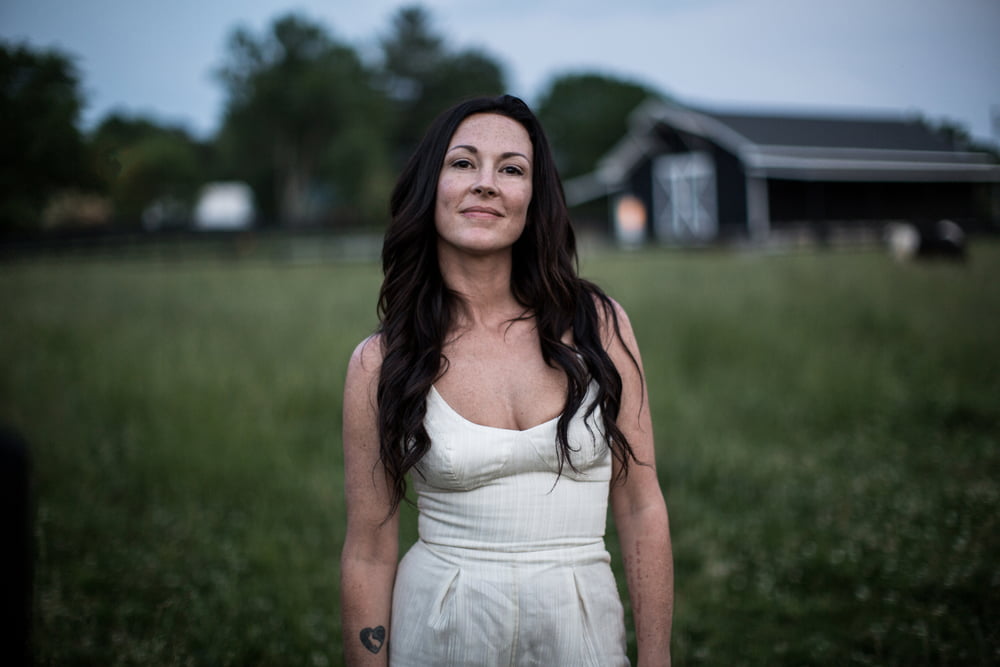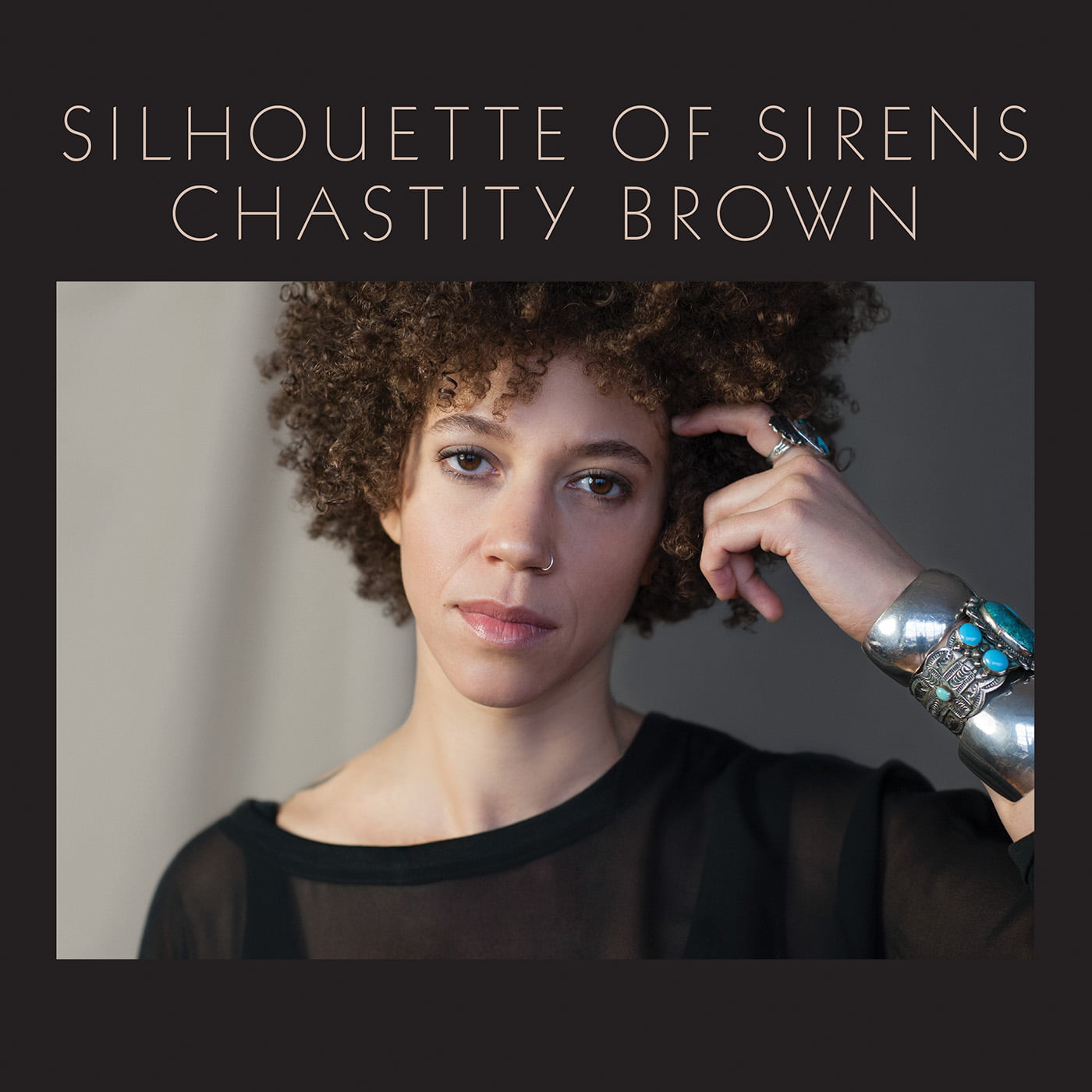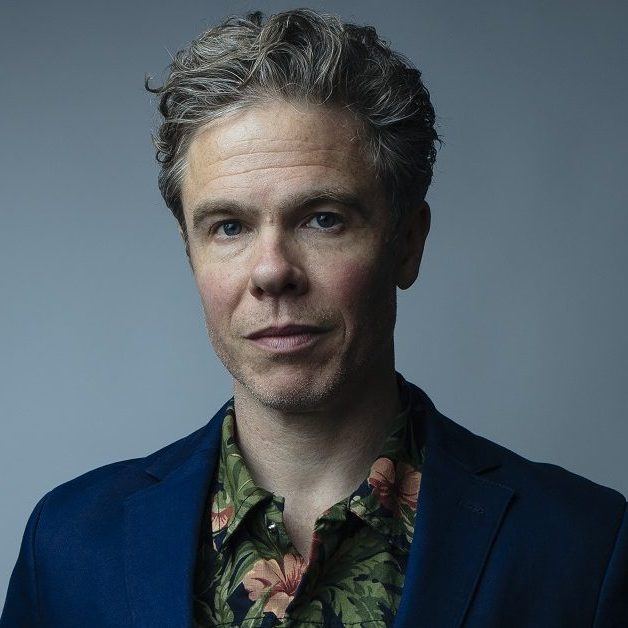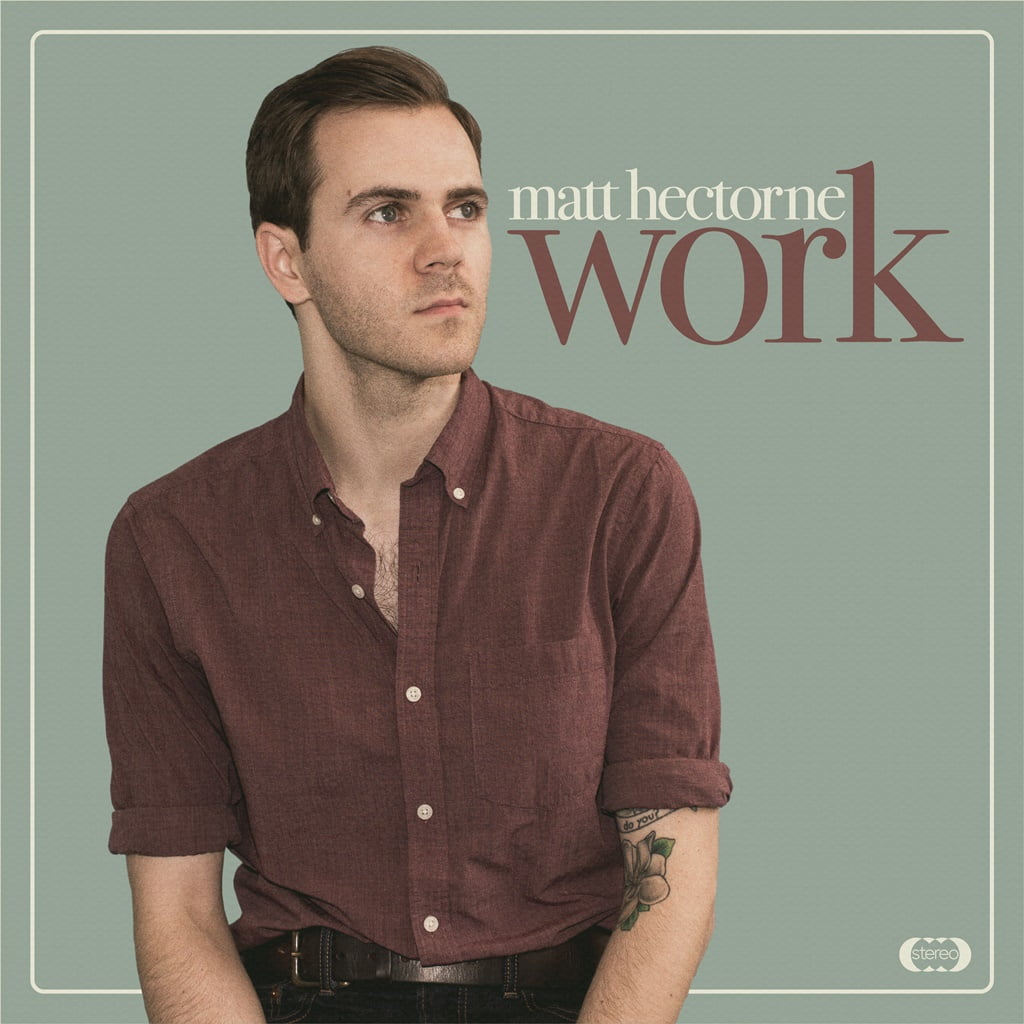It's hard to describe Amanda Shires, as a person or an artist. There's just something about her that floats above and beyond categorization and calculation. Perhaps it's the poet in her that tilts and colors her worldview into a magical, mystical joyride full of life, love, and the pursuit of happiness. Her last release, Down Fell the Doves, is a staggeringly wonderful collection of songs that attempt to capture and convey that joyride with quirky lyrics and unexpected melodies. This year, Shires follows that work up with My Piece of Land. Produced by Dave Cobb, the beautiful new album was written and recorded right as Shires was gearing up to have her first baby with husband (and, now, co-writer) Jason Isbell. In true Shires fashion, it's brimming with wonder.
So … you had a bunch of songs written, then you killed your laptop.
Yes! How did you remember that?
I don't know. I have this weird Rain Man thing. I just remember stuff. So, what do you think was in there that the world couldn't handle hearing?
[Laughs] There was one little tiny part of something that I had … I had part of “Harmless” from that laptop because I'd printed out an early draft of it. I don't know why, maybe just to look at it differently because I couldn't finish it. That's the only thing I had from that batch.
Hmmm. I always look at these things karmically: There's a reason everything happens. So, for whatever reason, the world wasn't meant to hear those songs.
Maybe they were all rap songs.
Maybe. We'll never know. So you had to press on from there. In the last few months of pregnancy, you started over.
Yeah. I was on the road up until July 5 or 6, flying on planes and traveling that way. I still played some shows around Nashville, but I was at home so much and I like being busy. I ran out of things to do. I did all the things you can think of to prepare for a baby … nesting and cleaning stuff up. I even have posters and stuff in the garage, from that time of making stuff organized. Then, after that, I just started writing. I got five songs or so in, and I called Dave and we scheduled it.
Was it a given that you were going to work with him or did you make him earn it?
[Laughs] I just thought, “I hope he says 'yes.' I hope he has time.” He had both of those things, so I was lucky to have him.
In the middle of all that, you were working on your degree [a master's in creative writing]. Is that all finished up now?
Nope. I'm working on my thesis. I asked for an extension, when I played in Chattanooga, from the stage. [Laughs]
[Laughs] It was granted, I take it.
Yes. They're nice folks over there.
I thought I would have time to finish it all. I didn't know anything about babies. I didn't know they wake up every two hours, then every three hours, and four hours. Now, I'm getting to a place where I'll have time.
Writing poetry and writing songs … the two aren't as interchangeable some, including a certain character on Nashville, might have us believe, right? They are very different forms.
Yeah. Very different. In songwriting, you have the musical setting which helps you dictate what your song's going to be or what mood it's going to be. With poetry, you don't have that. You have just the page. You have to get everything across without music. It's very different. You have waltzes and shuffles and all these kinds of rock 'n' roll songs. Then, poems, you can write in different meters and different structures. The lens is way smaller. The lens is very small with poetry.
That's an interesting way to look at it. Words have rhythms and beats and cadences, but folding in the extra layer of music puts it in a different realm. I feel like many of my favorite songwriters are also poets, whether they started there or not.
There are a lot of elements that are the same, that cross over. Like sonnets and rhyming, although poems also don't have to rhyme. But, in a song, you gotta have some rhymes. You really do. It's important. Especially for memorizing, I guess. Then you have all the other poetical things that go into songs, too, your similes, metaphors, allegories … all that stuff can apply.
I feel like it's songwriter-poets who more often land lines that stop me in my tracks. You have some moments like that, throughout your discography. My favorite on this record is “Your eyes a shade of wonder, like if thunder had a color.” That's crazy!
Awww. Well, that's a high compliment. When you're trying to describe something, it's best to just be yourself and describe it. If I said that in a conversation, people might think it sounded really crazy, like “What are you talking about?! That's not how we're communicating here.” But I can't just sing, in that song, “Kind of greenish, greyish, blueish, purpleish right now.” [Laughs]
[Laughs] “And with a certain hazy light.”
Yeah. And then with the implication of what that color does to you or how that moment kind of rocks you a little bit … like thunder.
Do lines like that catch you off-guard or do you go hunting them? How do those things come for you?
For me, it comes in my mind like a picture. I'm sitting here thinking and trying to describe something. I write everything down and there's a picture that just says it.
Alright. You have a little cosmic thing going on. I like it.
[Laughs] It's like an imagery thing. In my mind, there's an image of this setting. I don't know. It just comes like a poem or picture might look.
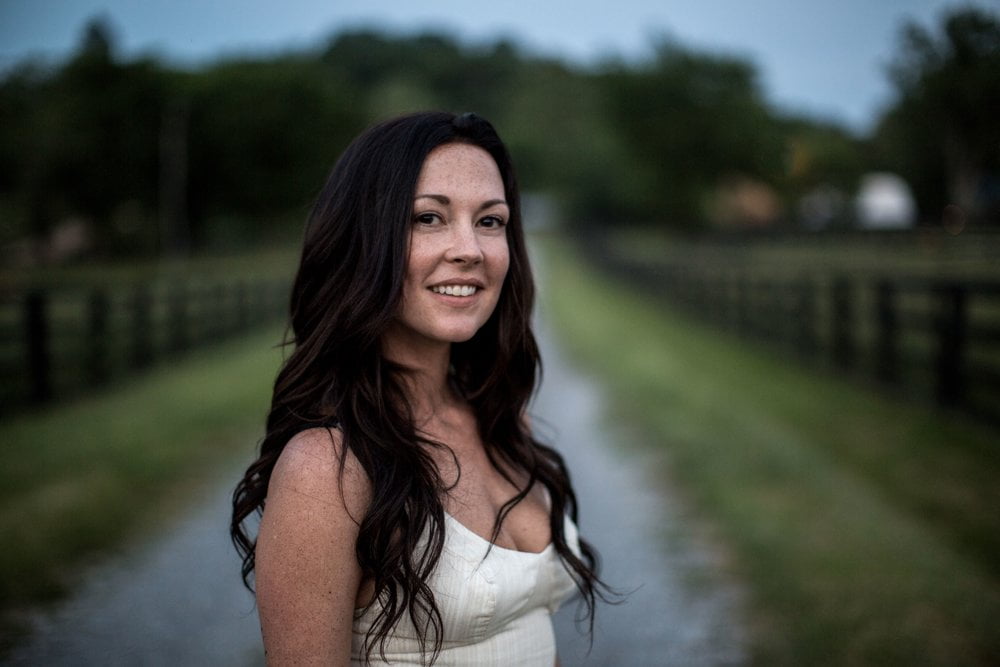
I get it. “Pale Fire” lays me down, too. It reminds me a bit of old-school, classic Ani DiFranco. She was a poet and a dancer before she fell into music. I don't know. There's something about that.
That one, I'm really proud of, for a different reason. I have two co-writes on this record — “Pale Fire” is one and “My Love (The Storm)” is the other. Both of those mean something to me because they were successful co-writes with Jason. By “successful,” I mean successful in the fact that we were able to talk about pretty deep things and create something together without either of us suffering. We didn't have to sacrifice anything when we were writing. We both got to communicate the way we wanted to without having to give up too much of our own preferences.
And that is a big deal. You're both great writers, but with different styles.
And, also, we haven't explored that a lot. It was a really good experience. You hear all these horror stories about co-writing.
I love seeing the two of you guys on stage together, seeing your love and your relationship … the dynamic of it. It's also very sweet and special seeing how you guys interact with the world. You're very open, posting photos and what not. It endears you to your fans on such a deep level. He and I have talked about it, but what's your thinking on living out loud in the way you two do?
My thinking is that it's easier to get through the world when you have other people who are sharing their experiences, too, I guess. When you are open, it gives people a chance to know what they're getting into. If you follow me or follow him, more than likely, we have the same views of the world. Then, if you're sharing stuff, it makes the world feel more connected … connected in the bigger sense, like we're all going through all this stuff at the same time.
That's one of the greatest things about social media and why it's been so successful: All any of us want is to be connected.
Yeah. Yeah.
Even if it's in crappy, trolling ways. [Laughs]
[Laughs] Yeah. It's the shared human experience.
Absolutely.
Also, it keeps you from going to a show and getting the kind of people who are there for the wrong reasons. [Laughs]
[Laughs] That was Jason's thing. He wants people coming to his shows to know who he is, to know where the songs are coming from so, like you said, hopefully there's some kinship there.
Yeah. So, when you get into a room and voice your opinions, you're not getting booed at.
Or you still might, but at least it'll be for the right reasons. [Laughs]
[Laughs] Yeah. Exactly.
Even though those are the first songs you guys wrote together, I hear “You Are My Home” as an answer to “Cover Me Up” and “Flagship.” Is that about right?
I don't think it's an answer to it. I mean, it could be taken that way. I can see that. But I feel like that song, for me, being pregnant, I was having to think about a lot of things … like hormones make you do. You have all these joyful things and all this hope. Then you have these dips where you have questions like, “Are we going to make it? Because we need to make it for this child, at least. How does that look? What is 'home' exactly if we're going to be traveling all the time and sometimes not seeing each other?”
Then there's the inherited sense of home that we all have from our own childhoods. It was, in a way, coming to realize that what you've inherited from your childhood is not the same as the home it is that you make for yourself. So, in that song, I wrote it trying to explore what it was I was feeling. And, I guess, realizing that home didn't mean just this place where we live together — the house and the stuff that's in the house. It's the person who, really, is my home … that no matter where we were, where we lived, if we're on the road together or not together, in my mind, my home is with Jason and with Mercy. It doesn't matter where it is. It can be any town. We can call every town our home.
It's a state of mind … or a state of heart, I guess.
Yeah. A state of heart, more accurately, for sure.
So, a year in, what has little Mercy Rose taught you that you didn't know before? Besides the fact that babies don't sleep.
Now, she sleeps from 9:30 pm to 9:30 am. It's awesome! She's been doing that since she was about six months old.
It's given me a fresher outlook on the world. Everything is wonderful to look at. It's psychedelic. You're seeing everything like a psychedelic trip or something. You start looking at the grass again and being amazed by it. We watch her be amazed by her own hands. It's hilarious. It's hilarious and it's gross and it's awesome, all at the same time. [Laughs]
[Laughs] Okay. Last question …
Really?! Already?!
I mean, we can keep yakking …
I didn't even know I answered any.
Yeah. You got a few in there. So, I don't know who Maria is, but she has a couple of scenes in this thing.
She's a real person.
Can we make “some sad Maria” … is that going to be the new “Becky with the good hair”? Can we get that kind of traction on this thing?
[Laughs] Maybe!
[Laughs] I think t-shirts are a must.
[Laughs] That's awesome! I actually need to call Maria and tell her that her name is on the record.
Several times. Girls are going to be trying to kiss her in alleys now.
Oh … that happens sometimes.
Photo credit: Josh Wool
